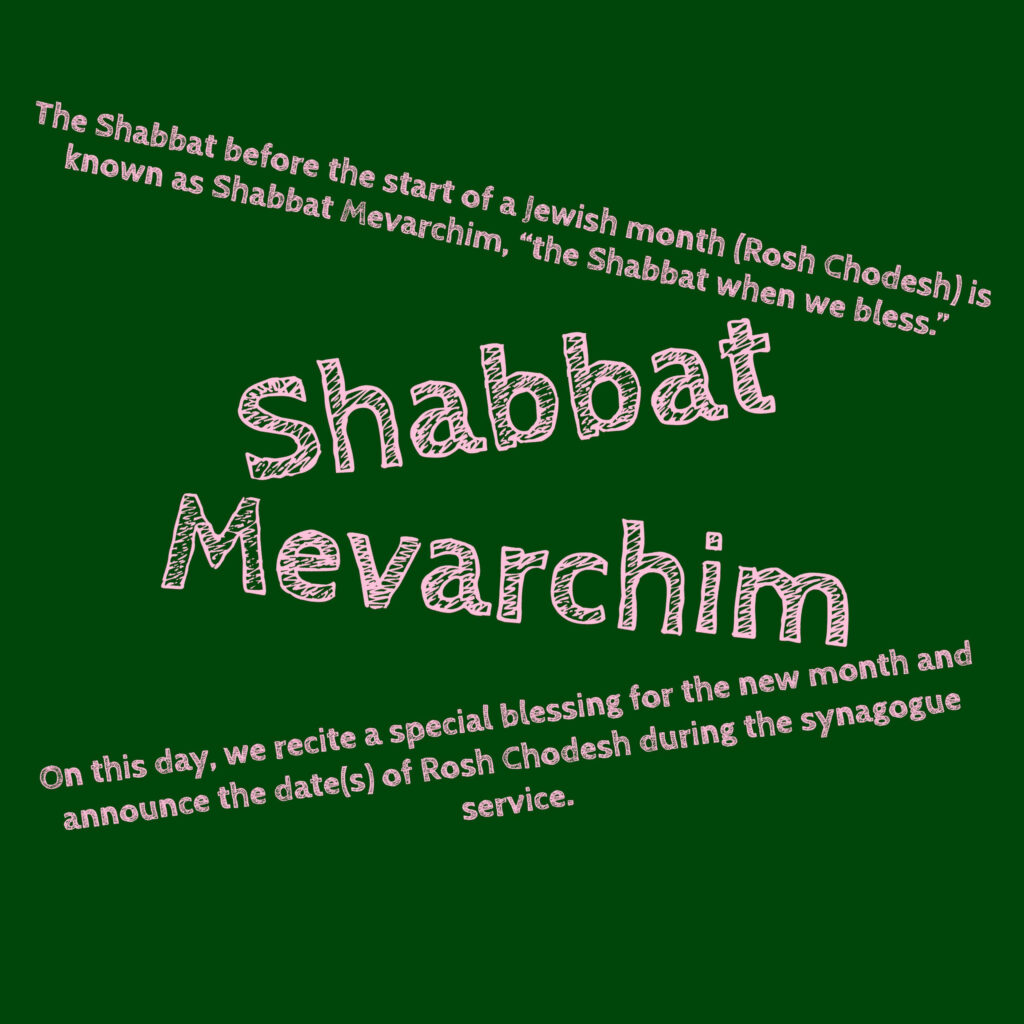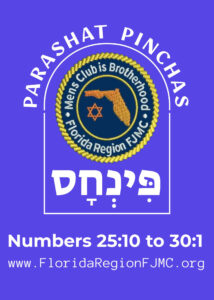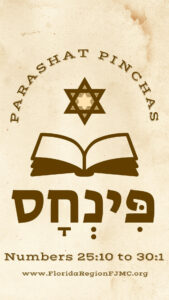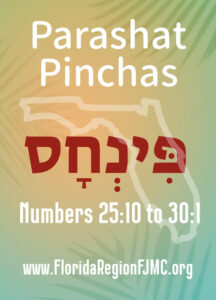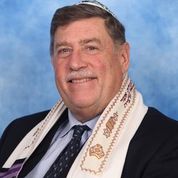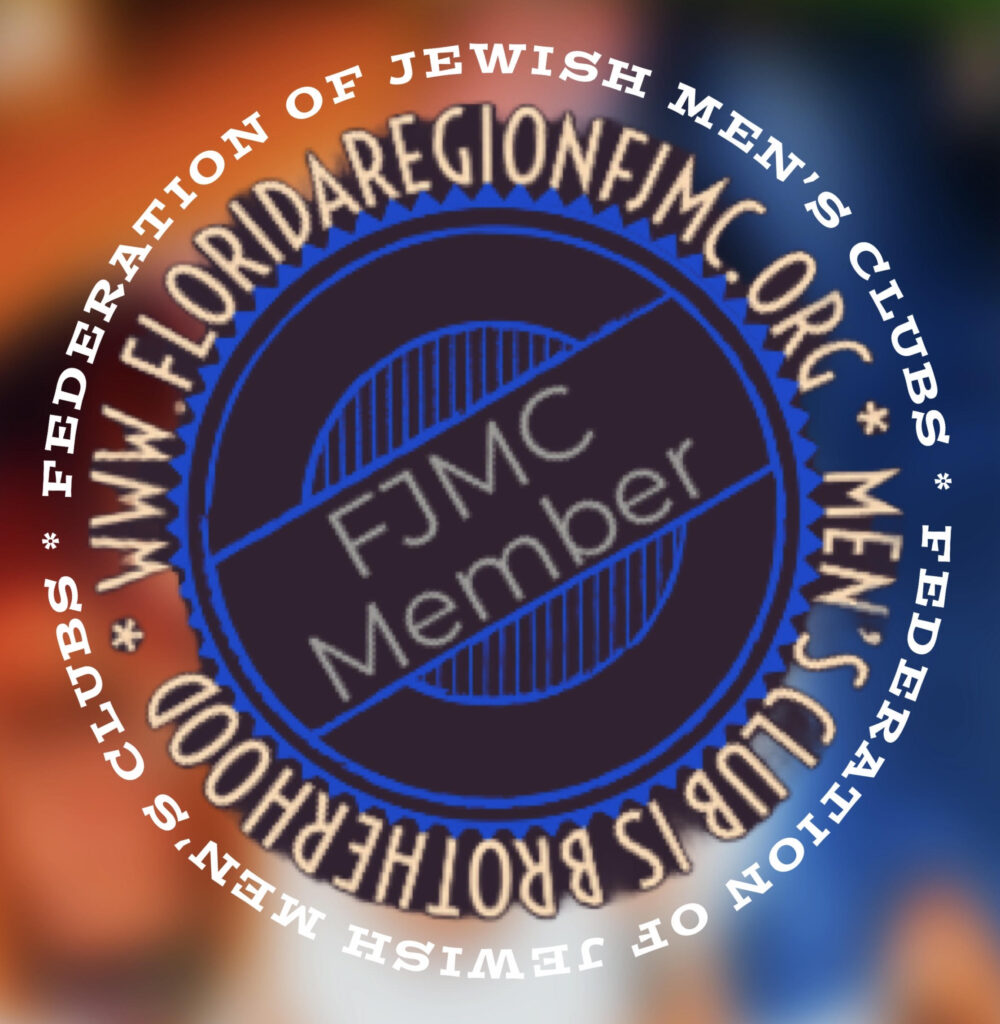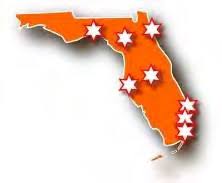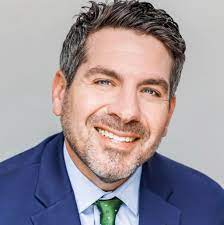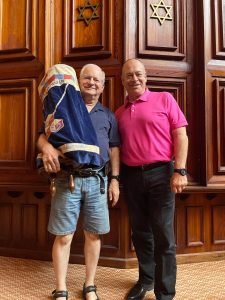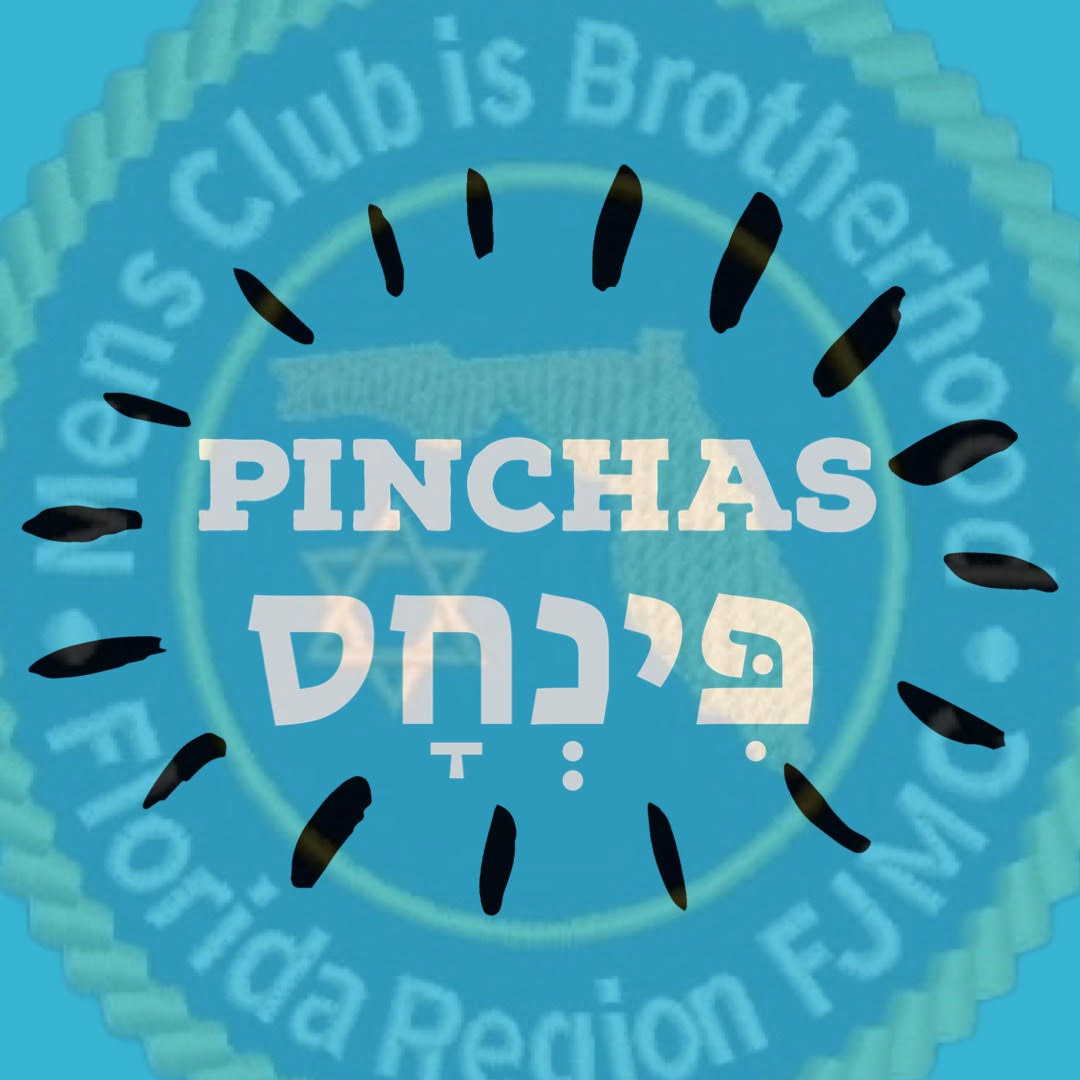
When you Choose Shabbat, you choose to learn that every Shabbat is different and this Shabbat is special indeed, as it is also Shabbat Mevarchim, “the Shabbat when we Bless”.
This week we read from Parashat Pinchas (פִּינְחָס), the 41st weekly Torah portion in the annual cycle of Torah readings. According to Wikipedia, Pinchas (פִּינְחָס), Numbers 25:10 to 30:1, contains 7,853 Hebrew letters, 1,887 words, 168 verses and makes up 280 lines of the Torah scroll.
Rabbi Michael D Klein of Temple Torat Emet offers his insights on this week’s Torah reading, Pinchas for Shabbat, July 19, 2025 aka 23 Tammuz 5785:
“How do we know if our actions are righteous or not? This question is answered in two distinct situations found at the beginning and end of Sedra Pinchas. First, the evil sorcerer Balaam and Balak, King of Moab, cannot overcome G-d’s protective shield and are unsuccessful in attempting to curse us. Balaam however hatches a plot to attempt to use a Moabite princess to entice Moshe into immorality and idolatry. Princess Kozbi of the Moabites mistakenly identifies and entices Zimri ben Salu into immoral acts in front of the entire congregation resulting in many individuals following suit and causing a terrible plague which leads to the death of 24,000 people.
Pinchas, grandson of Aaron, witnesses the events and in a decisive act, takes a spear and kills Kozbi and Zimri resulting in the immediate cessation of the plague. One may argue against violent reaction on the part of Pinchas as unjustified or unrighteous, but, at that moment, when it seemed that many were drawn into idolatry, his decisive action probably saved the lives of many more people and thus he is granted Brit Shalom- a covenant of peace by G-d to protect him against vengeance by the family of those slain.
The second instance of righteous action is presented at the end of the Sedra where the daughters of Zelophehad present a question of inheritance to Moses and the Elders. Their father died in the wilderness and had only daughters. According to the laws stated at that time, only sons could inherit their future stake in the Promised Land. Because of their strong, righteous desire to inherit and keep their family inheritance they present Moses with a conundrum which results in the creation of new Halacha concerning inheritance. The daughters of Zelophehad are considered righteous because their request represents love of the Land of Israel and respect to their parents and family.
In both instances we are given examples of righteous actions in response to important circumstances. In both instances, we are given examples of how our Torah and Halacha are flexible enough to respond to whatever is required for survival and how sometimes righteousness is defined in contrasting situations. May our devotion to G-d and Torah lead us to deeper understanding of the beauty of G-d’s love for Israel!”
Questions for Consideration:
- How does the abuse of a princess to cause evil illustrate the depths of hatred of Balak?
- What is the eventual fate of Balaam? How is this just?
- What does the story of Pinchas teach us about guarding ourselves against curses?
- How dos the Talmud and Rabbinic Judaism use the events of the daughters of Zelophehad as a template for applying Halacha?
Rabbi Michael D. Klein attended Yeshiva College of South Florida and served as Torah Reader, Hebrew teacher, Chazzan and spiritual leader of various synagogues throughout South Florida. In January 2015 he became Ritual Director, Bnai/Bnot Mitzvah instructor and 7th grade Hebrew instructor for Temple Torat Emet of Boynton Beach. In October 2019 he was accepted into an accelerated track and received his smicha from Yeshiva Adath Wolkowisk and has been the Rabbinic leadership of Temple Torat Emet since August 2020. In September of 2022 he was appointed Rabbinic and Spiritual Advisor of the Florida Region of FJMC.
Choose Shabbat; choose to celebrate, to light candles, sing songs and learn a little Torah.
This moment of Jewish Learning is brought to you by the Florida Region of FJMC International (FJMC). We are part of a confederation of over 200 Jewish Men’s Clubs and Brotherhoods representing over 20,000 members across the United States, Canada, Latin America, and beyond. Learn more about how your Jewish Men’s Club or Brotherhood can affiliate with the FJMC at: https://fjmc.org/for-clubs/affiliating-with-the-fjmc/.
The Florida Region of FJMC serves the needs of affiliated Men’s Clubs and Brotherhoods throughout the State of Florida. Get to know more about the FJMC Florida Region and our growing network of Jewish Men’s Clubs and Brotherhoods at www.floridaregionfjmc.org and please visit and LIKE our Florida Region FJMC Facebook Group at www.facebook.com/FloridaRegionFJMC.
